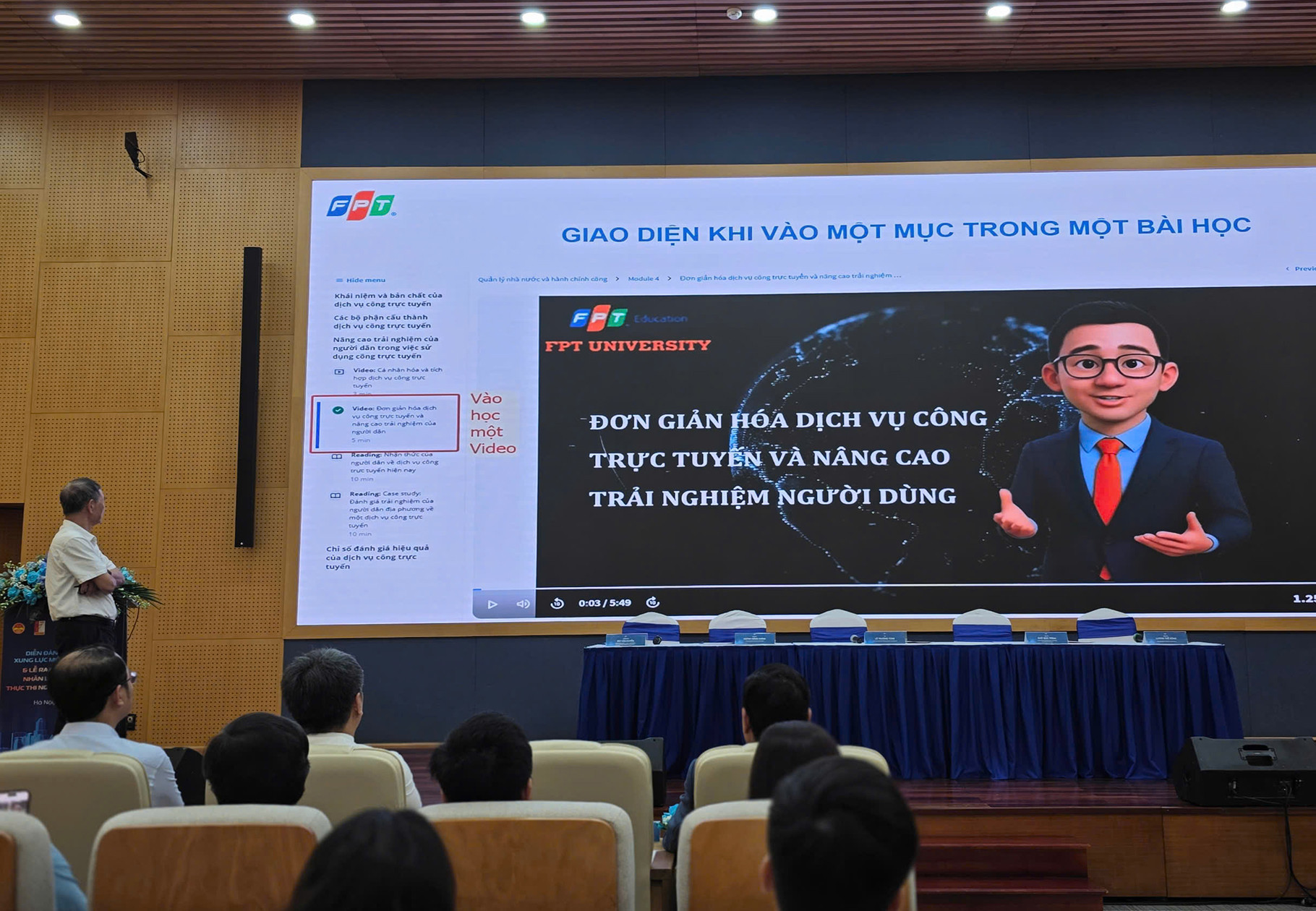
Pham Thi Ngoc Thuy, Office Director of the Private Economic Development Research Board (Board IV), commented that the Party and State have issued consistent resolutions on science, technology, digital transformation, and economic diplomacy. To realize Resolution 57, Vietnam needs to build a new workforce with innovative thinking and capabilities to meet the era’s novel demands.
Nguyen Van Khoa, CEO of FPT, emphasized that Resolution 57 is a revolution, opening significant opportunities for the nation, particularly in science, technology, and human resource development.
“At FPT, we raise the question of mastering science and technology for the sake of the country’s development to students from their school days. Upon graduation, they can become specialized scientists or science-technology managers, nurtured by the spirit of Resolution 57,” he said.
“I believe that by 2045, Vietnam will have world-class managers, contributing to developing a nation based on science and technology. This is why the Strategic Human Resources Alliance was established,” Khoa said.
To implement this human resource strategy, Dr Le Truong Tung introduced a new concept - “Engineer 57”, or ‘KS 57’ which means the engineer appearing in the new development era and in accordance with the Politburo’s Resolution 57 on developing science and technology, and digital transformation.
“KS57” is the nickname of a program being implemented by FPT University’s initiative, officially named the “Strategic Reserve Force for Implementing Resolution 57 on Digital Transformation in State Agencies and Enterprises.”
As digital transformation accelerates across ministries, localities, and enterprises, particularly in professional IT organizations, the demand for human resources will surge, potentially leading to shortages. The reserve force, or the students under this program, will support experienced core teams and join forces in digital transformation projects for state agencies and businesses.
Using AI to produce “Engineer 57”
According to Tung, at FPT University, the program will begin in the third semester. If needed, students can pause their studies for 1–2 semesters to join real-world projects with core teams. That is why the program is designed as a short-term course, which can be considered a national revolution in digital transformation, involving both core local forces and the reserve force, similar to the collective effort during the South Vietnam liberation era.
“This force isn’t just typical IT engineers. They have technology knowledge, enhanced with digital transformation skills, enabling them to support state agencies or collaborate with professional IT teams on digital transformation projects.
“When localities need support, students will participate as interns, guided by dedicated teams. After completing their tasks, they will return to their regular studies,” Tung explained.
Regarding the program’s structure, it consists of two in-depth modules. Mass training will be delivered online via Coursera to take full advantage of high-quality online learning resources.
Assessments will be made via big questions, with a grading system, accompanied by Coursera certificates verified by FPT University. Students must also attend a separate test to ensure quality. This is the method FPT University applies to other courses for rigor and standards.
After completing the two in-depth modules, students will be able to make voluntary registrations, initially for IT students who are in third semester onward with good or excellent academic performance.
Participation is free, and students will receive certificates and be included in the strategic human resource pool, ready to meet demands from state agencies and enterprises. This offers not only learning opportunities but also opens career prospects, especially in national digital transformation projects.
The curriculum focuses on the digital transformation ecosystem, covering government, enterprises, digital economy, digital finance, and digital marketing. Core competencies aim to build skills for organizing and executing system-level digital transformation, crucial for future human resources.
All this content has been realized in lectures, ready for large-scale implementation at FPT University.
“This is the initial experimental step of FPT University, in which AI is applied to the maximum in stages such as content creation, test design and video production. The entire process follows the direction of the professional department, with the goal of mastering the technology so that AI can perform as required, replacing time-consuming manual work of the past,” Tung said.
Thai Khang